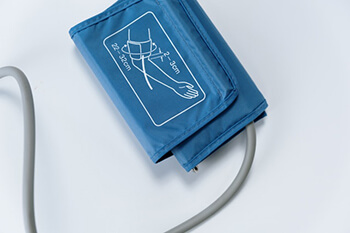What Is Cayenne Pepper?

Cayenne pepper is a common household spice that boasts a surprising amount of health benefits. Cayenne peppers are closely related to many other chili peppers, such as bell peppers and jalapeno peppers. They're part of the capsicum annuum family, the plant that produces spicy peppers.
Cayenne peppers are commonly grown in Central and South America as the climates provide the perfect growing location. However, because of early trade, cayenne peppers were shipped across the world, and now feature in many different cuisines such as Creole, Mexican, Cajun, Korean, and more.
Some cultures have also used cayenne pepper for its medicinal purposes. Ayurvedic medicine uses cayenne pepper to improve the function of the circulatory system, treat problems in the digestive system, boost the immune system, and act as a natural decongestant. This is due to the many cayenne pepper benefits on offer. For instance, this fruit is a rich source of antioxidants and capsaicin.
Capsaicin is the active component in peppers that causes a hot or burning sensation in the mouth. While capsaicin may burn at first, it's what's responsible for many of the cayenne pepper benefits we know of today. You can find cayenne pepper in most supermarkets, either in fresh or dried form.Cayenne Pepper's Benefits
Some of the most impressive benefits of cayenne pepper are listed below:
Treating Colds

Cayenne pepper may be able to help treat common cold or congestion. The capsaicin in cayenne pepper can help loosen mucus and phlegm, relieving the congestion you may feel when experiencing a cold. Excess phlegm and mucus can be seen as an irritant by the body, so using cayenne pepper as a natural decongestant is a great way to beat a minor cold.
Cayenne pepper also contains more vitamin C than an orange, helping to boost the immune system before the cold or infection can set in.
Boost The Metabolism
Cayenne pepper also has the potential to help you boost your metabolism. Cayenne pepper increases how much heat your body produces. This thermogenic effect can impact how many calories your body burns.
Studies have found that people who add ground cayenne into their diet tend to consume fewer calories. Being in a small caloric deficit can help you lose excess fat. It's recommended by dieticians to boost metabolism with small amounts of cayenne pepper, which can be used as a culinary spice to season food and reduce the amount of salt you consume.
The effect cayenne pepper has on metabolism in the bigger picture may be small. Researchers have found that people who consume cayenne pepper may only burn around ten calories more than someone who had not. Your body may also adapt to this effect of cayenne pepper, so it's recommended to seek other natural ways of boosting the metabolism as well as following a healthy diet.
Help with Digestion
According to research, cayenne pepper may help with improving digestion. Cayenne pepper stimulates the production of saliva in the mouth, which helps us digest our food and can rid our mouths of foul-smelling breath. Cayenne pepper can also help stimulate gastric juices to help us digest and metabolize our food. This is essential for good digestive health, as the enzyme production in our stomachs can help us digest our food and prevent stomach infections.
It was once thought that spicy foods could cause stomach ulcers. However, research now shows that cayenne peppers can protect us against gastric ulcers and can even treat existing ulcers. Consuming cayenne pepper can help prevent an upset stomach, stop stomach pain, and even slow intestinal gas.
You should add a small amount of cayenne pepper to your diet by using it as a seasoning, mixing it into a small amount of lemon juice, or taking it as a supplement. By doing this in small doses, you may be able to use cayenne as a natural remedy for digestive issues.
Lowering Blood Pressure

People who have high blood pressure need to avoid high salt levels in their food. Using cayenne pepper to season food is a great alternative to high sodium seasonings. Cayenne pepper also has the benefit of potentially lowering blood pressure. Some animal studies link the lowering of blood pressure to consumption of cayenne pepper. However, more studies need to be done to confirm these results.
To lower blood pressure naturally, add cayenne pepper regularly into your diet or take a supplement if you don't like the taste of dietary capsaicin. You shouldn't ever use cayenne pepper in place of blood pressure medications.

Heart Health
Capsaicin can lower your heart rate, helping stabilize high blood pressure and a fast heart rate.
High blood pressure and a rapid heart rate can make you at risk for heart disease. Heart disease occurs when you have a buildup of plaque in your blood vessels, which can cause damage to the heart. Heart disease makes you more at risk for heart attacks and strokes.
Researchers have found that cayenne pepper can reduce plaque in the arteries. Cayenne pepper produxes nitric oxide, which relaxes the arteries. The capsaicin found in cayenne pepper plays a role in how your blood clots, regulating clotting so that your blood doesn't clot too much or too little. It can also lower cholesterol levels, making it beneficial for people at risk for heart disease.
Cayenne pepper can also help with blood circulation in the body, assisting to reduce the triglycerides and cholesterol that may form clots, and improve blood vessel strength.
For the reasons above, cayenne pepper is commonly used in ayurvedic medicine for heart health.
Psoriasis
Psoriasis is a condition that causes the skin to form red crusty patches, typically covered in silver scales. It's believed to occur when your body creates too many skin cells.
The capsaicin in cayenne peppers can help reduce pain and itching for people with psoriasis. One study found that applying a capsaicin cream can help reduce symptoms of psoriases such as pain and red, itchy patches.
For psoriasis pain, you should use capsaicin creams and ointments as directed. You can also talk to a dermatologist, who can provide medical advice as to whether capsaicin would be a suitable treatment for you.
Pain Relief

Capsaicin has been found to help with pain relief. It has the ability to block pain messages in the body. Capsaicin can also numb some of the body's sensory nerves. When we eat spicy food, we're actually numbing part of the tongue, causing us to be able to tolerate more and more spice. This is also due to the fact that capsaicin blocks substance p, which is our body's initial pain reaction.
The numbing of pain is contrary to the myth that capsaicin 'burns off' our taste buds. In fact, if you go for a long time without eating spicy foods, you may notice that you have a lower tolerance than you previously had.
The ability to block pain is why cayenne pepper works well for people suffering from conditions that cause joint and muscular pain. Capsaicin supplements and creams have been found to help with conditions such as arthritis and osteoporosis because of their ability to target substance p, the chemical that carries pain messages to the brain. Applying capsaicin cream can also help relieve other joint pains, muscular pain, and pains from diabetes. You should always read the instructions written on the package before applying them to your skin.
If you're experiencing joint pain, you should look for capsaicin cream at your local health store or pharmacy and follow the directions on the packet. These creams and ointments can typically be applied up to four times a day, providing relief for the following hours.
Cayenne Pepper's Antioxidants
Cayenne peppers contain antioxidants that can fight against free radicals in the body. Free radicals cause oxidative stress, which can have harmful effects, including premature and wrinkles. Oxidative stress can also have more serious consequences - free radicals can damage our DNA and cause our cells to be weakened against tumor-causing mutations that can occur. This increases the likelihood of cancer.
Antioxidants work to prevent oxidative stress from occurring. Cayenne peppers contain vitamin C, vitamin E, choline, beta carotene, lutein, and cryptoxanthin. These antioxidants can help fight free radicals within the body, and also work to prevent neurodegenerative diseases and heart disease.
Conclusion
There are plenty of impressive benefits of cayenne pepper to make the most of. This spicy fruit can reverse excessive blood clotting, relieve pain, improve poor circulation, prevent the formation of cancer cells, help the body burn more calories, and help our blood vessels perform as they should.
Its active ingredient, capsaicin, is the reason that cayenne pepper has incredible health benefits, and the reason why it is used in many integrative medicine practices.
Adding cayenne pepper to your day-to-day meals may seem daunting, but it can be easily done. You can add cayenne pepper to vegetables, curries, stews, and even smoothies. Adding more cayenne pepper to a dish can increase the level of spice it has. Taking cayenne pepper as a supplement may also help improve your circulation and can even help with migraine pain.
You should look for recipes containing cayenne that you can add slowly to your diet. If you have a low tolerance for spicy foods, you can add fresh cayenne to a creamy dish, which can offset the heat of the spice.
Capsaicin creams and ointments work well for treating pain management. You should always do a small patch test before applying new creams as you may have skin irritation or an allergic reaction.
Finally, speak with your doctor before using cayenne as a natural remedy, as it may interfere with some medications.


